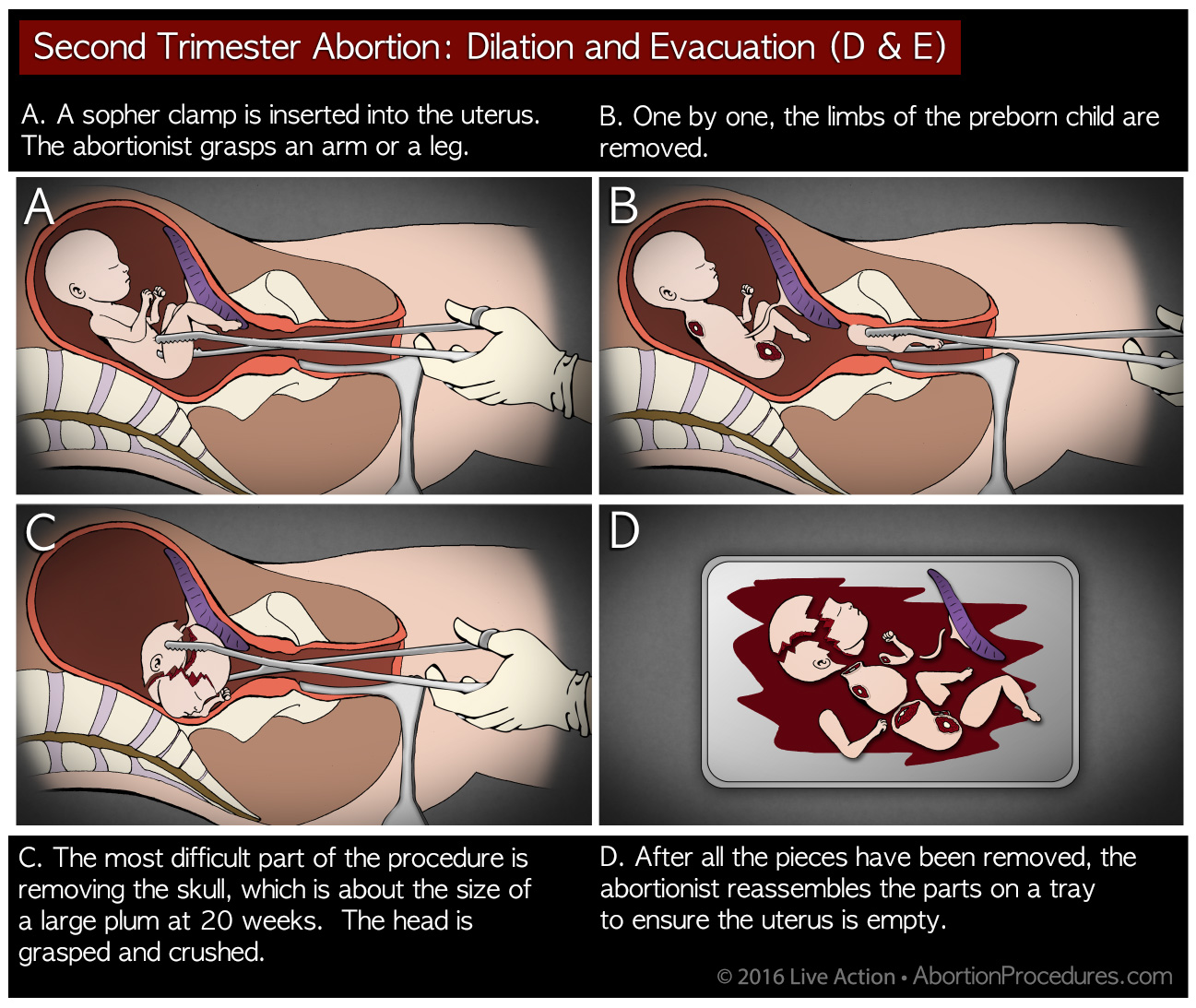Arkansas Governor Asa Hutchinson signed into law a bill that will ban the most common second-trimester abortion procedure in the United States, known as D&E or dilation and evacuation. The bill, the Arkansas Unborn Child Protection From Dismemberment Abortion Act, was highly supported by pro-lifers but, as expected, has upset pro-abortion activists. Not only has the bill banned the gruesome procedure, in which preborn children are dismembered — literally ripped apart limb from limb — but it also includes a clause that allows a woman’s spouse or parent to sue the abortionist for performing a D&E abortion and request an injunction that would stop future D&E abortions.
Arkansas is now the seventh state to enact a ban against dismemberment abortion. The new law makes D&E abortion a Class D felony, punishable by a $10,000 fine or six years in prison. The bill was approved by the Senate in a 25-6 vote. Former abortionist turned pro-life activist, Dr. Anthony Levatino, describes a D&E abortion in this video:
Laura McQuade, president and CEO of Planned Parenthood Great Plains, defended the abortion method, calling it the most common second-trimester abortion procedure in the United States and the world.
But just because something is common does not make it acceptable. In reality, ripping a child’s limbs off until she dies should not be acceptable to anyone, and that is what those who fought to end the use of D&E abortions in Arkansas are aware of. Dr. Paul Jarrett, Jr. describes what happened in the middle of an abortion where he used forceps to pull off the child’s arms and legs:
And as I brought out the rib cage, I looked and saw a tiny, beating heart. And when I found the head of the baby, I looked squarely into the face of another human being — a human being that I had just killed.
Arkansas Representative Andy Mayberry, a co-sponsor of the bill, referred to the procedure as “gruesome” and “barbaric.”
“You see a baby, an unborn life, a fetus, engaging in fight-or-flight reaction to the forceps going into the womb, trying to remove an arm, remove a leg,” testified Senator David Sanders, co-sponsor of the bill.
Outlawing the procedure is the main part of the bill, but the new law also allows spouses, parents, and legal guardians to sue an abortionist for civil damages or an injunction that could stop a future D&E abortion from occurring. The National Right to Life Committee emphasizes that only the abortionist can be sued because it is only the abortionist who would be violating the law by performing an illegal D&E abortion. The NRLC gave this statement in a legal memorandum published on February 5, 2017:
Under a civil remedies approach, private individuals are given “standing”– the ability to sue the abortionist. There are two types of civil remedies: injunctions and civil damages. An injunction has a number of advantages. It allows action to prevent the dismembering of a living unborn child before it happens. It permits a case to be brought promptly before a judge who can directly order the would-be assister not to violate the law. That person then knows that if he or she violates the court order, the judge will order fines for contempt of court.
For most physicians, this is likely to be a far more realistic deterrent than the potential for criminal prosecution, as doctors’ fear of malpractice liability demonstrates, monetary sanctions are extremely effective. They can be enforced through the garnishment of income and the seizure of assets. Civil damages are monies awarded after the fact, as in traditional malpractice cases.
While abortion proponents are attempting to take down the bill by claiming that it allows rapists to prevent women from aborting, this is not the case. The law applies only to spouses, parents, and legal guardians, and only in the case of the soon-to-be illegal D&E abortions. Women who receive the abortion can not be sued. In the cases of spousal rape or incest, any legal type of abortion can still be performed under this law.
“Since pro-abortion activists don’t wish to openly defend the horrific dismembering of an unborn child in its mother’s womb, they resort to spreading misinformation about the law,” said Carol Tobias, president of National Right to Life. “Journalists writing about the Arkansas Unborn Child Protection from Dismemberment Abortion Act would be well-advised to review the law and our memo, to avoid spreading false claims.”
In reality, most victims of rape and incest are pressured into aborting their babies, says pro-life activist Juda Myers who was conceived through rape and runs the organization Choices 4 Life, helping women and girls who choose life for their children conceived in rape. “Sure, there will be those [rapists] who might want their victim to have the baby but that is definitely not even close to the number forcing abortion,” Myers said. “And the baby can be used as evidence [of the rape or incest].” Abortion clinics have been under scrutiny for performing such abortions and failing to report the rape or incest, sending the victim right back into her abusive situation.
In his dissent to the U.S. Supreme Court’s 2000 Stenberg v. Carhart decision, Justice Kennedy observed that during a D&E abortion, “[t]he fetus, in many cases, dies just as a human adult or child would: It bleeds to death as it is torn limb from limb. The fetus can be alive at the beginning of the dismemberment process and can survive for a time while its limbs are being torn off.”
Editor’s Note: While banning any kind of abortion at any stage of pregnancy is a step towards saving lives and exposing the cruel reality of abortion, Live Action is committed to working until every baby at every age is protected in our laws and our culture. For more information on other types of abortion, see the medically animated videos available at Abortion Procedures.








